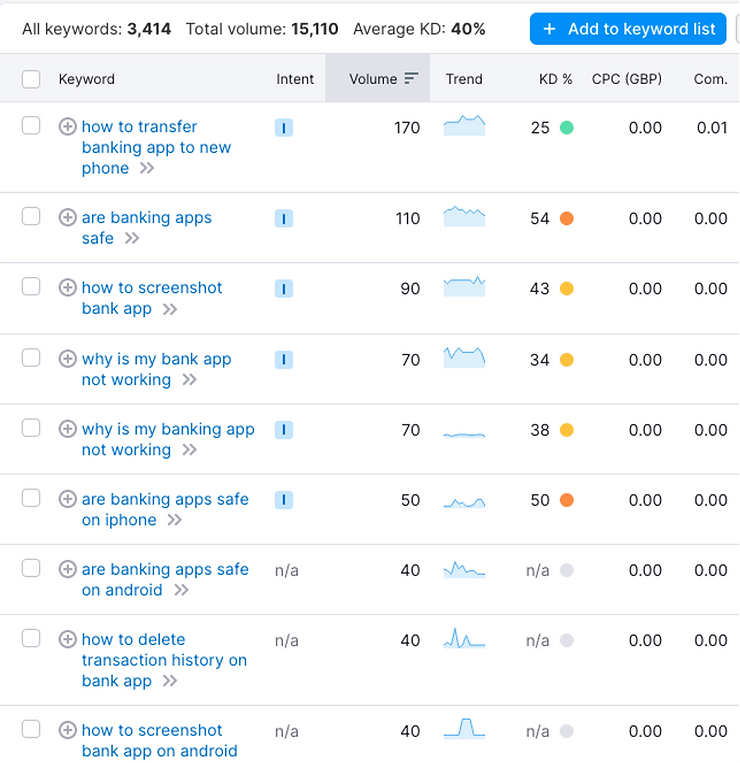Dan Callis has seen it all. As a self-employed SEO Advisor, he spends his working days unpicking the website damage done by well-meaning marketing teams.
Ever the professional, Dan refuses to spill what kind of back-end chaos he’s had to deal with. “I wouldn’t be able to do that for NDA reasons!”, he laughs. He has, however, agreed to give me a list of what to absolutely NOT do under any circumstances. I’ll take it!
Here is it… The 2023 guide to massively fucking up SEO.

1. Ignore local
Have you ever typed “near me” into a search engine? Cheap lunch near me? Buy a notepad near me? Probably you have. The search term has increased over 100 times year-on-year. Each month there are a staggering 1.5 billion “near me” searches and counting!
Businesses that fail to optimise for this are seriously missing out. “Yeah, it’s great being a national or international service or product, but there are customers on your own doorstep too”, warns Dan. “Signals to Google like a physical location are a trusted sign you are a legit business, which can help with both local and wider rankings. A lot of tech companies, particularly app-based ones, miss this step”.
2. Adopt poor tech standards
“Anyone can write a long-winded list of technical standard jargon”, Dan eyerolls. “XML SITEMAPS, CANNIBALISATION, HREFLANG, METADATA, etc.
“But no two sites are the same, nor does default box-ticking on SEO needs mean much without expert context. Technical SEO is like the foundation of a building – get it wrong and the whole thing might fall down”.
3. Ignore how customers search
Personally, this is one that I struggle with. I called my own business, Hannah Duncan Investment Content Ltd, purely for the search terms. And sometimes I think that it was an incredibly dull name. I’m keen to hear Dan’s view.
Dan is a firm believer in making it easy for customers to find you. “I wish I had encountered this less, but it’s not unknown for businesses to put more focus on their own branding with swanky product names and then forget to optimise for keywords around what the product does”, he sighs.
“For someone to find your product this means they need to already know your product exists. Target what your product offers users, not users that you’ve already started selling to through brand recognition”.
4. Neglect information on service pages
“This leads into the next point – Information! Your site is a brochure and each page can catch a whole new net of search terms if done correctly”, Dan highlights.
“Often I see businesses with a single service page and a bullet point list of what they offer. That bullet point list should link to pages about each offering, which creates not only more chance of ranking when users search for that offering but a more tailored page for selling to users looking for that specific thing”.
Create a journey for your customers, a path of links showcasing the products and services you offer. After all, your website is your shop, entice people down the aisles! Research by Conquer Your Risk found that 35% of sites contain broken links, leading to serious cybersecurity risks.
5. Ignore longtail
Longtail keywords are those lengthy terms you type into Google. For example, I just entered, “% of UK businesses ignore local SEO”. Your customers might type, “How to save money for a wedding in 2025”. Or “Is it better to save money or invest in shares to buy a house?”. As Dan explains, longtails are important. Ignore them at your peril!
“A lot of businesses get too lost on “hero” keywords – those big terms with all the search volume and often so vague the likelihood of converting is low”, he explains. “Ranking for “Bank” is a great vanity achievement and will likely drive traffic if you are a banking app, but will it convert?
“Now imagine you rank for “Ethical Banking App” or “Banking App with Savings ISA” or “Best Banking App for Freelancers” and ask yourself which is more likely to drive value from traffic. It’s always a numbers game in SEO, but the end goal should always be revenue”.
6. Go for topical blogging over evergreen
It’s no secret that I love blogs. And honestly, this is the reason why. SEO. If you want to capture those longtail keywords, blogging is the way to do it. “Seven practical ways to save money for a wedding in time for 2025”. Or “The pros and cons of investing your money to buy a home”. It’s the obvious strategy, right?
“Longtail keywords also have a lot of value for blogs”, agrees Dan. “Particularly Q&A content, a quick search for “banking apps” in Semrush’s keyword magic Tool shows a selection of questions users search with a collectively decent volume and low competition”. (See image below).

“A lot of businesses will focus on topical finance news for blog content, which can add social value and topical spikes in traffic when the news is fresh, but within a month the content is a dead weight to the site”, Dan explains. “Evergreen content around questions that users will always ask means your blogs will continue to deliver traffic for years to come”.
For my blog, this has been the case too. “Priti by name. Psycho by nature” did so well for a while then fell dead. Meanwhile, “Jokes for Investment Managers” has consistently outperformed the others, over four years.
7. Ignore international standards for SEO
“Being an international business is great”, begins Dan. “New markets and regional offices and all that. But what if I told you your website needs a VERY SPECIFIC skill set within SEO to perform well in international search engines?” Building an international SEO strategy can help you to expand your global reach, create better user experiences and build credibility. But it can be complicated. And the price for screwing it up can be business-busting.
“Factors like Hreflang, site structure, translations and localisation all need careful consideration. Mess this up and you may tank your rankings at home as well as abroad”.
8. Fail to track correctly
One of the most important tips for businesses is to GET YOURSELF ORGANISED. Track, measure and analyse your performances, this should form the basis of your strategy.
“A calculator is only as smart as the person punching the numbers in and the same goes for your website data”, Dan expands. “Still to this day, I find businesses that are failing to track conversions to a valuable level or not checking their data for insights at all when making business decisions. Get your analytics tracking well and understand what a macro/micro conversion looks like on your site – for example, a business lead versus a newsletter signup – and where your leads are coming from”.
While it may feel like extra work, the information is deeply valuable. “This data is priceless and can help your business grow”, Dan adds.
How NOT to massively f**k up your SEO
Sometimes people ask me if I know any SEO people. Dan Callis is one of the good ones. I know him because we’ve been working with the same client for years. Dan super knowledgeable and he helped me with this blog for free. He’s also a bit of a character. Here’s what he had to say about helping fintechs boost their rankings.
“As an Anarchist in principle who believes in the abolishment of capital in some form or another, I find it odd to be writing an article on FinTech. But then again I work in Marketing, specialise in a niche that requires the existence of an Effective Altruism-led corporate data-harvesting machine, live in “a society” and need FinTech tools to function in the current system. Ain’t Cognitive Dissonance wonderful?”
Thanks Dan!



